Some of the world’s top women polo players compete this week in Argentina in the sport’s first-ever female World Cup, the culmination of years of growing opportunity in a game known for its equestrian allure and high-society sensibilities.
The woman’s polo World Cup started on Saturday last week at the Cathedral stadium in the leafy Palermo neighborhood of Buenos Aires, and ends tomorrow after the week-long tournament.
The competition features teams from the home country, Brazil, England, Ireland, Italy and the US.
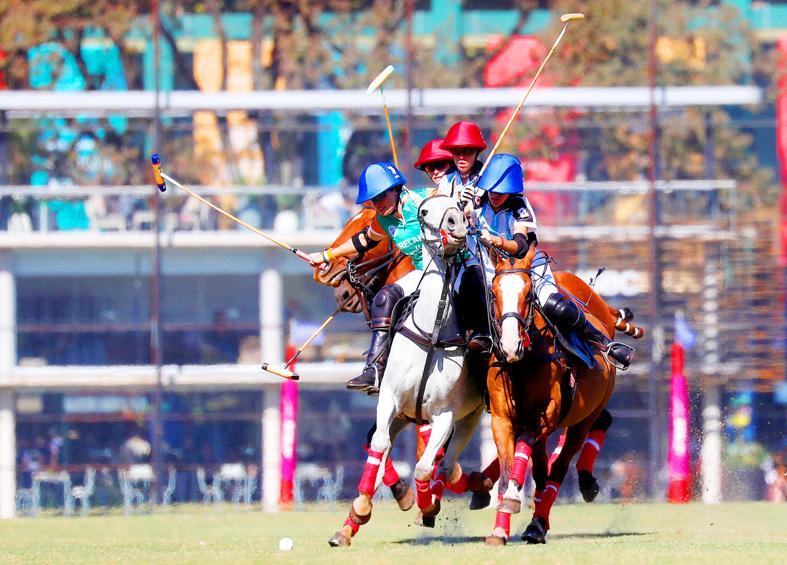
Photo: Reuters
“In recent years, the growth of women’s polo has been so impressive,” said Clara Cassino, a top Argentine player.
“Each year it grows so much, more so for women’s polo than for the men,” she added, in a nod to the addition of women’s tournaments in Argentina and beyond.
An earlier tournament known as the Women’s Polo Open started in Buenos Aires five years ago with its own player rating system, or handicap, and is held each year concurrent with a men’s tournament, which dates back more than a century.
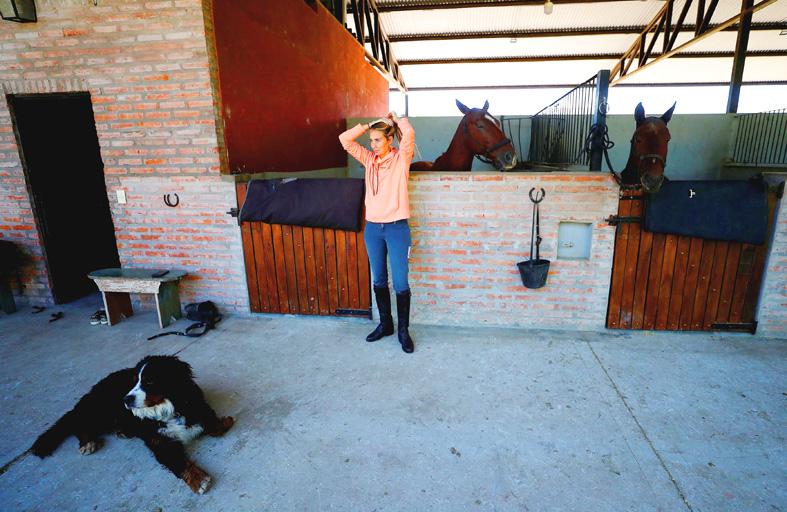
Photo: Reuters
The women’s tournament is credited with inspiring similar competitions in the past few years in Britain and the US as the game has grown in popularity.
Polo, often dubbed the sport of kings, is believed to be one of the world’s oldest known team sports, but traditionally only open to men.
It was brought to Argentina’s sprawling plains, or pampas, by British immigrants in the late 1800s, where it found a home alongside the South American country’s iconic gaucho cowboys.
Today, Argentina is among the top countries where polo is played, as well as being a major exporter of horses specially bred for the sport.
The game is played with teams of four horse-mounted players who aim to score points by hitting a ball through goal posts with long wooden mallets at the ends of the 274m grassy field.
Modern polo combines high-tech innovations, including horse cloning, with artisan-made studs, saddles and boots, and now new opportunities for women who want to play.
Azucena Uranga, a 20-year-old member of the Argentine national team, cheered the chance to compete in the first World Cup.
“It gives us our own place and an incredible opportunity, one that maybe we’ll only fully realize in a few years,” she said.
Delfin Uranga, Azucena Uranga’s father and the president of Argentina’s polo association, said that the country’s international leadership in the sport is especially important because other nations often follow its lead.
“It sends a message to the world,” he said. “To give women an opportunity to compete at the same level as men.”
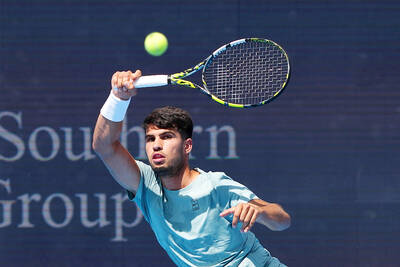
Carlos Alcaraz on Sunday fought through a second-set slump to post a roller-coaster 6-1, 2-6, 6-3 victory over Damir Dzumhur in his opening match at the Cincinnati Open. The Spaniard, playing his first tournament since losing to Jannik Sinner in the Wimbledon final, raced through the first set, but completely lost his way in the second, dropping his serve twice against the 33-year-old Bosnian. Alcaraz regained his intensity and cut down his errors in the third set as a seventh ace took him to a match point that was converted when Dzumhur fired wide. “It was just a roller coaster,” said the second
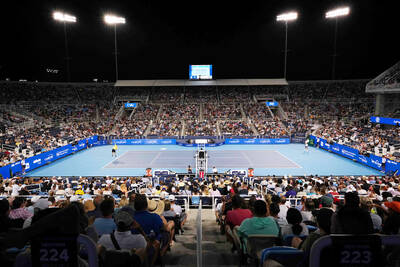
NEXT ROUND: World No. 1s Jannik Sinner and Aryna Sabalenka opened their title defenses with straight-sets wins, while Iga Swiatek and Taylor Fritz also advanced Jannik Sinner and Aryna Sabalenka got their title defenses off to smooth starts as they powered into the third round of the ATP-WTA Cincinnati Open on Saturday. The men’s and women’s top seeds, each ranked No. 1 in the world, were both competing for the first time since Wimbledon, where Sinner lifted the title and Sabalenka bowed out in the women’s semi-finals. Sinner crushed Colombian Daniel Elahi Galan 6-1, 6-1 in steamy afternoon weather, while Sabalenka beat 2023 Wimbledon champion Marketa Vondrousova 7-5, 6-1 under the lights of the night session. Sabalenka needed 54 minutes and a service break in the final game

Taiwan’s men’s basketball team on Monday clinched a spot in the FIBA Asia Cup quarter-finals with a 78-64 win over Jordan in Saudi Arabia, securing their best finish in the tournament since placing fourth in 2013. The win was sweet revenge for Taiwan, who were denied a quarter-final spot by Jordan at the same stage of the previous Asia Cup in 2022 after blowing a nine-point lead in the final minute and losing 97-96 on a half-court buzzer-beater. “History is part of the journey,” Taiwan head coach Gianluca Tucci said when asked about the 2022 collapse of the team, who he did
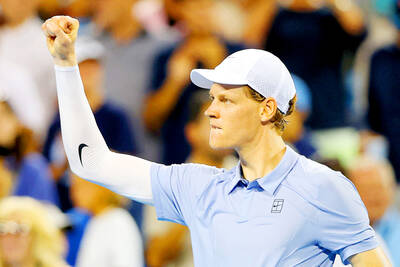
TECH ISSUES: Before Sinner’s match against Diallo the lights went out at the courts, and during it the electronic line-calling system partly failed and an alarm sounded Jannik Sinner on Monday ignored technical issues interruptions and a blaring alarm to defeat Gabriel Diallo 6-2, 7-6 (8/6) on a day of distractions at the Cincinnati Open. The top-seeded defending champion got down to business against the 35th-ranked Canadian, who was plagued by eight first-set double faults and 49 unforced errors in the match as he faced the best in the world. Sinner recovered smoothly from an early break down and had his hands full on his way into the fourth round, sending over an ace on match point after saving a set point in the tiebreaker. Play was stopped briefly with